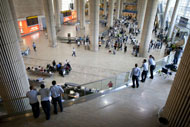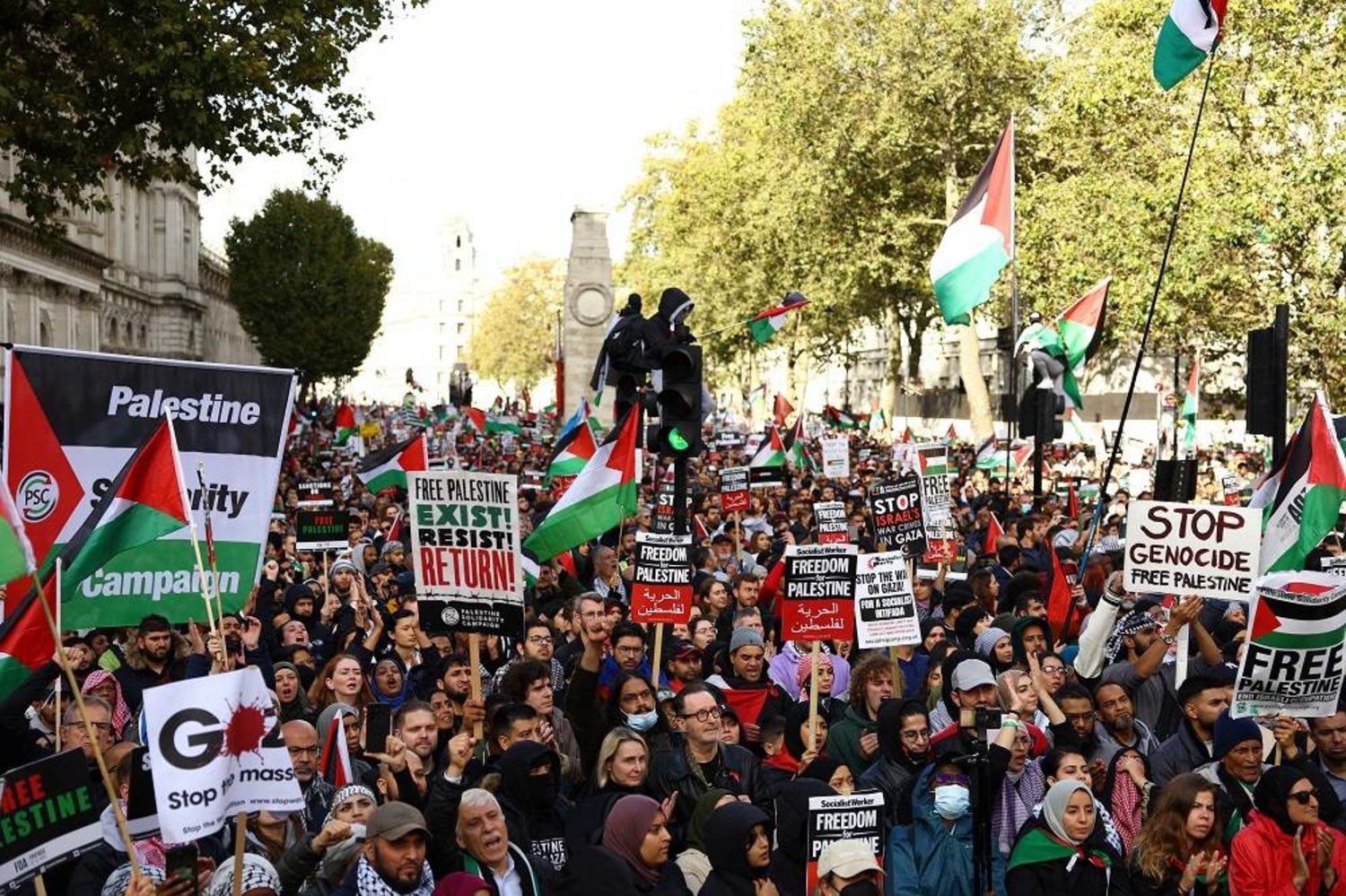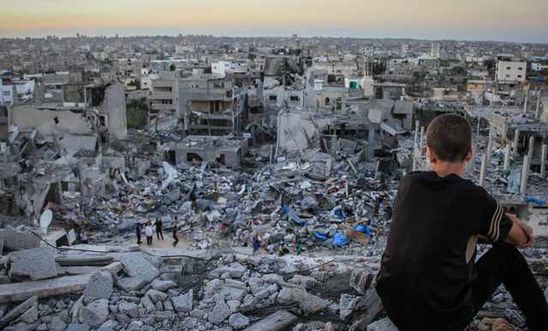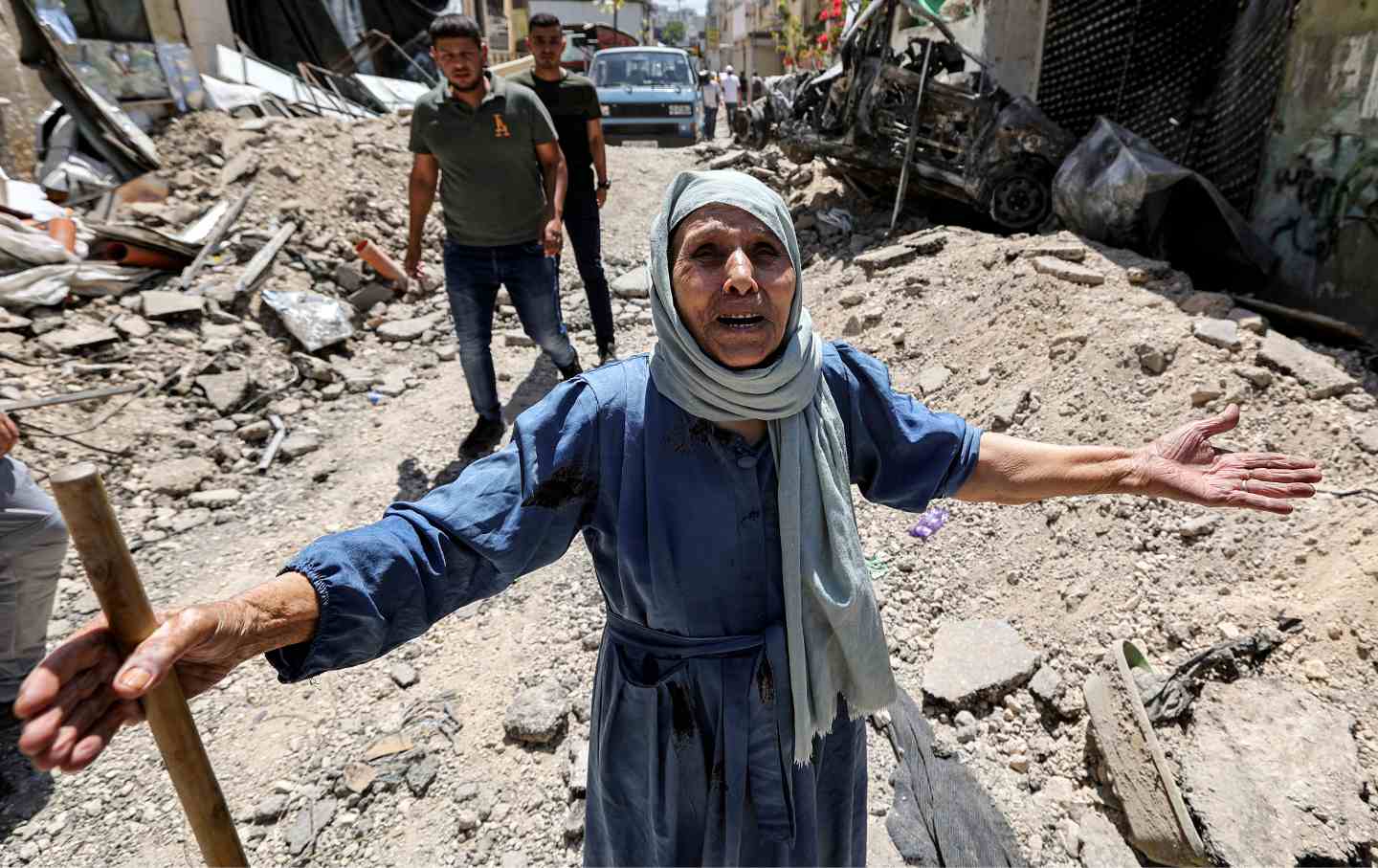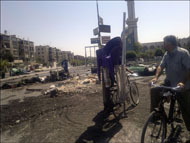
Open wounds are the worst. Just as they seem to be closing up, a trauma to the area busts it right back open, bringing back all the pain and agony originally inflicted. The wound opens and reopens, triggering the same pain, if not worse, like the first time it happened.
This is exactly what happens to the Palestinians time and time again. The Nakba of 1948 was probably the most traumatic experience in the Palestinians’ collective memory, and what’s worse, it continues to this day. Not only has that horrific injustice never been rectified, but the Palestinians are subject to “mini-Nakbas” all the time and the wound continues to reopen.
According to media sources, practically half of the Palestinian Yarmouk refugee camp population in Syria has been displaced after a reported 25 people were killed yesterday in heavy shelling by Syrian forces. Palestinians sources have put the Palestinian death toll since the start of the Syrian conflict as high as 700, mostly from Yarmouk, in the Syrian capital Damascus.
Obviously, the Palestinians in this camp have already experienced displacement in the worst possible way. In 1948, they fled for their lives, taking whatever possessions they could as the fighting and massacres carried out by Jewish gangs – and later the Israeli army – terrorized them into leaving their homes. They thought they would return – a reasonable belief at the time – when the fighting died down. That was not to happen, and thousands ended up refugees in Syria (along with Lebanon, Jordan and Gaza). Sixty-four years later, after the hopes of returning to Palestine have diminished with each passing year, the nightmare has happened all over again. Now, these thousands of Palestinians are taking shelter in mosques, schools, tents, wherever they can, to flee the fighting in and around the camp, torn away once again from the only semblance of normalcy they have.
If only Syria were the only example. During Israel’s eight-day war on Gaza this November, Gazans huddled together in schools, near hospitals and anywhere that remotely looked like a shelter. And they were the lucky ones, who did not lose their lives or loved ones. Instead, they sat day and night listening to the bombing, wondering if they would have a home to return to or not. Gazans are also mostly refugees. According to UNRWA statistics, three-fourths of the Gaza Strip’s population are refugees from 1948 – that is approximately 1.1 million people. So, just imagine, being trapped in a ‘shelter’ listening to bombs explode and not knowing what you will resurface to. The Palestinians of Gaza have experienced this terrible feeling before and they have passed on their history, and probably their fears, to their children and grandchildren. It is a fear founded in horrible irrefutable facts that continue to haunt them to this day.
On a less collective scale, Israel’s policy of house demolitions has the same effect. One day you have a home, shelter, a roof above your and your family’s heads and the next day you don’t. After death, this is surely the worst punishment possible. And for the Palestinians, it is a recurrent atrocity.
All of these examples point to one pressing and necessary truth: the Palestinian cause must be resolved with the refugee issue at its center. No people deserve to be put through the same trauma over and over again simply because the world does not have the will to stand up to Israel and impose a just solution.
These incidents are also a reminder that the right of return is the only just way to solve the problem. The Palestinians in Syria may have made Yarmouk or Daraa camps their place of residence, but it will never be their home. They don’t feel that affinity and neither does Syria. The same applies to Jordan and to Lebanon, and to those in Gaza’s refugee camps as well.
Israel will not admit to the injustice and misery it created in 1948 on its own. The Palestinians realized that long ago. That means, it is up to the international community to hold Israel accountable. Palestinians everywhere have had enough of exile and displacement and of the world kowtowing to Israel’s narrative. The facts speak for themselves. If nothing else, the situation of the Palestinians should shame the world into imposing a just solution, because like they say, if you are not for Palestinian human rights, you are not for human rights at all.
Joharah Baker is a Writer for the Media and Information Department at the Palestinian Initiative for the Promotion of Global Dialogue and Democracy (MIFTAH). She can be contacted at mid@miftah.org.




